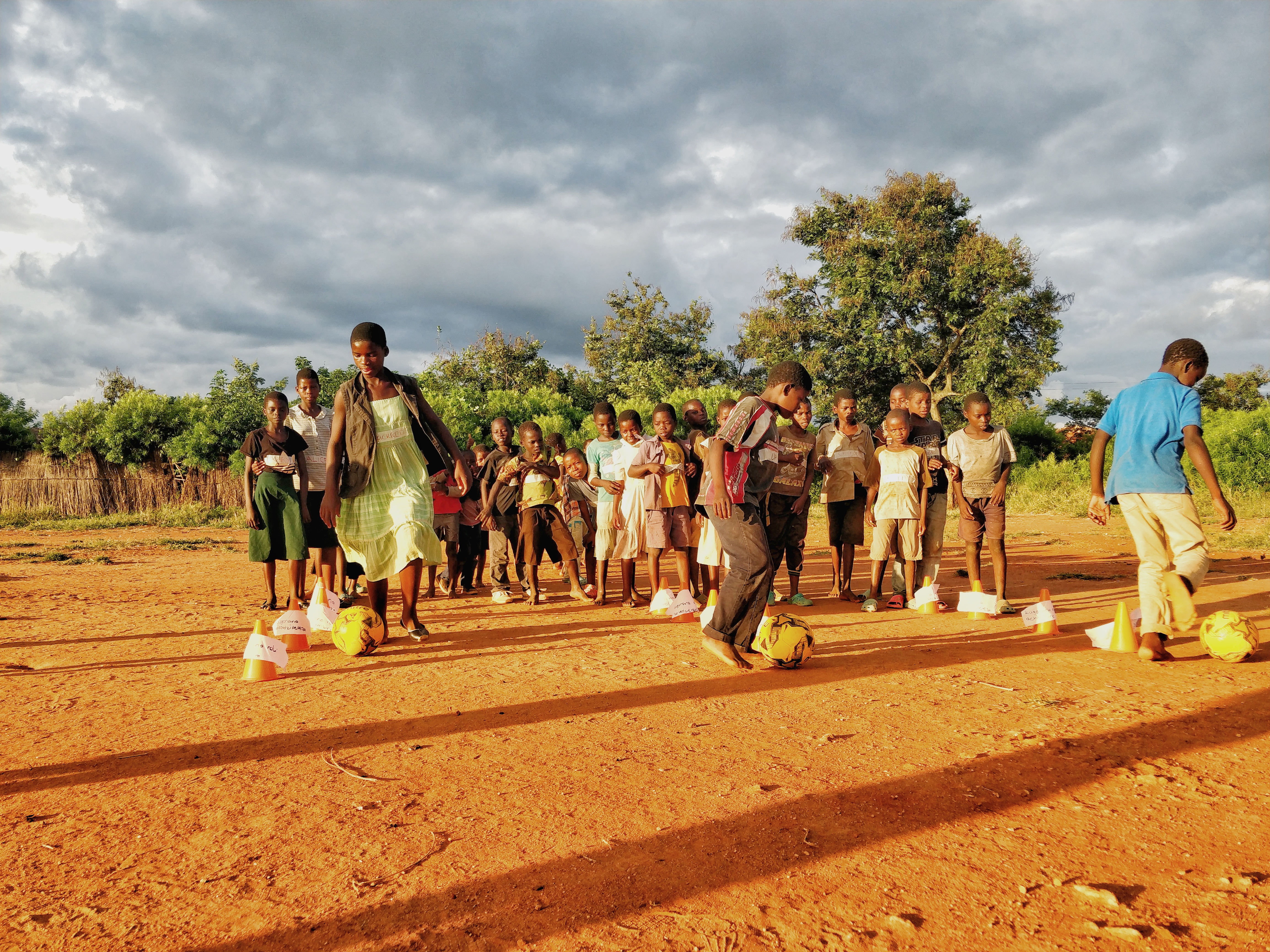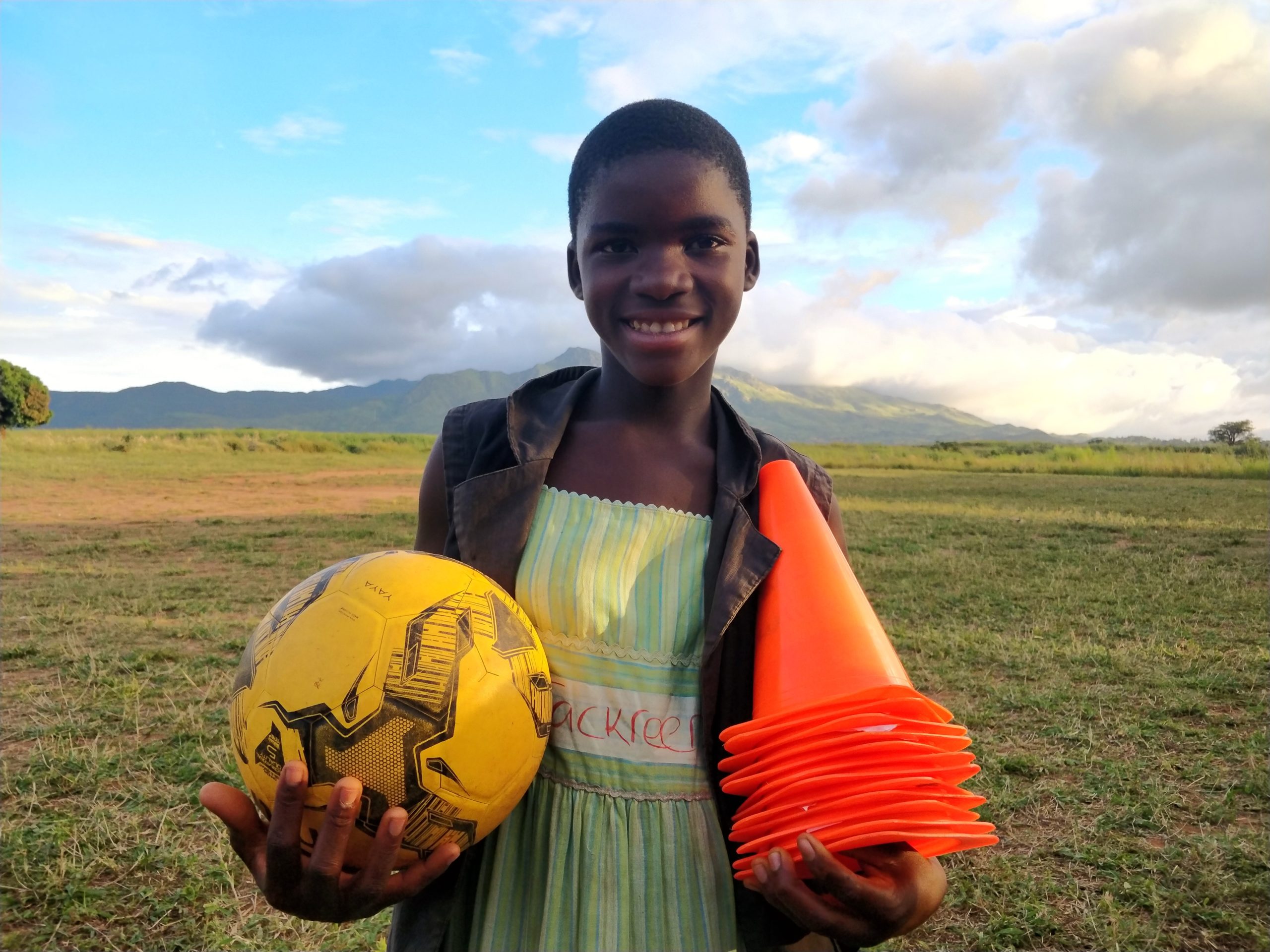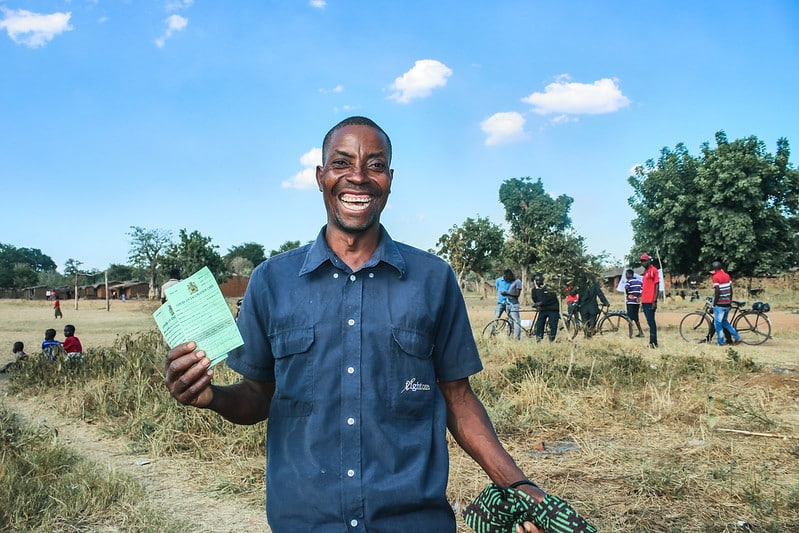Jackreen Chiphala is 13 years old and one day would like to be a teacher because, as Jackreen says, they know so much about so many things.
In her community in southern Malawi, though, very few girls finish secondary school, let alone college. Early marriage and cultural factors often derail the future of girls like her.
But Jackreen hopes to be different and she was feeling particularly good about those prospects last month when she joined One C SKILLZ, a Johns Hopkins Center for Communication Programs initiative that uses soccer to teach about HIV and how to avoid it. It also tackles gender norms and gender-based violence as well as skills to stay healthy and be influential in their communities.
Jackreen’s favorite part is when she learns, through play, how to avoid risks such as “multiple sex partners, alcohol, older men and unprotected sex” in order to achieve her dreams. “After One C SKILLZ, I will avoid being pressured into doing things that will distract me such as relationships with boys before I am ready and I will focus on my studies.”
The SKILLZ initiative, part of CCP’s One Community program in Malawi, is using a 10-session curriculum developed by an organization called Grassroot Soccer. The curriculum has two age-specific components, one for kids ages 9 to 14 and one for 15- to 17-year-olds.
The program just started in March and already there are 28 One Community staff trained as master coaches and 168 community volunteers trained as community coaches. There are already more than 4,270 kids signed up. By the end of the fiscal year Sept. 30, the goal is have had 37,750 children participate in at least seven sessions each.

Kids from OneC Skillz practice their footwork. Photo by Nandi Bwanali
“The idea is to use soccer as a means of educating young people about HIV prevention,” says Thomas Ofem, One Community’s senior technical advisor. “Young people find programming that doesn’t involve play to be boring. They have very short attention spans. You lose them. This program is designed to get kids moving and learning at the same time.”
Even the coaches are seeing the benefits. “One C SKILLZ makes me feel like a child again,” says Coach Stophel Kamanga. “Through play, we are able to build personal connections with the children who then open up to us and we ably support them.”
The practice sessions include lessons on puberty, saying no to peer pressure and early sexual encounters, risk-taking behavior and communication skills.
Ofem says the ultimate goal is to see a drop in HIV incidence in young people. UNAIDS statistics estimate that, in 2017, 9.6 percent of adults in Malawi live with HIV. Roughly 71,000 children 14 and under are infected with HIV and 350,000 people 17 and under are orphans because of HIV.
Jackreen’s father, Edward Chiphala, says he is very happy that his daughter is part of the soccer program.
“She has learned a lot in such a short period of time,” he says. “I feel One C SKILLZ is a good program because it equips our children with much deeper and relevant information which we are not able to give them in our capacity as parents.”




